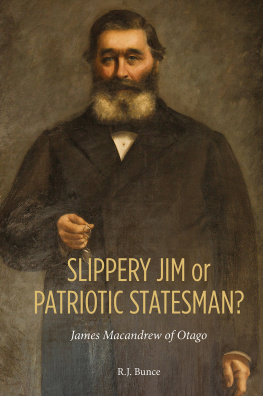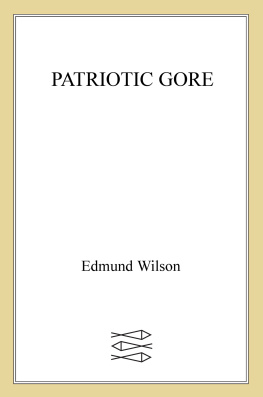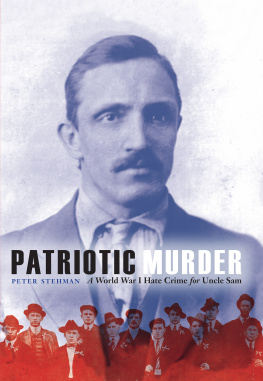Foreword
I first met sociologist Anna Sanina when she gave a talk on Patriotic Education as a visiting Fulbright Scholar at my university. In the beginning, I wasnt quite sure what she meantthe US had scrapped most official civics programs before I got to public school, and I was unaccustomed to thinking about patriotism in education. Sanina began with the idea that although Americans tend to think we do not have patriotic education, we doand as I watched her talk, I realized she was right. Learning to be a US citizen is so ubiquitous in schools that it is almost invisibleand yet, from the pledge of allegiance to the military recruiter to the anthem at the football game, our schools are steeped in what Sanina calls the patriotism of everything. Thus this monograph, while focusing on patriotic education in Russia, also holds a mirror to other societies where patriotism is created at the crossroads of education and society.
Examining the operations of patriotism can be startling in itself, since patriotism can feel so very natural; as Benedict Anderson wrote, in the modern world everyone can, should, will 'have' a nationality, as he or she 'has' a gender. ( Imagined Communities , rev. ed. London: Verso Books, 1991, p. 3.) Love for the nation can feel inborn, and there is a relationship to the homeland that is deeply instinctuala love for the language, architecture, people, even the trees and sky of ones environment. But patriotism, as Sanina points out, is a constructed formation that connects identity, community, country, and state in an emotional complex. Specifically, in this work she questions how that love for the homeland is rerouted to maintain citizen loyalty not to a country , but to a state and its authorities. This process of the socialization, as Sanina describes, is produced in educational systems that are embedded in other social structures, from the family to the community to the government. And the story of how these structures have interacted with education in Russia, which has seen such dramatic change since the fall of the Soviet Union in 1991, is a fascinating one.
Saninas study begins with a mystery: How is it that patriotic education has grown seemingly spontaneously in post-Soviet Russian schools without a strong ideological framework or an effective government supported system? To answer this question, Sanina uses Pierre Bordieaus concept of habitus to approach the question as a sociological one, with its roots in the social values, attitudes and behavior of educational agents and wider society. Combining research from historical archives, sociological data, and personal interviews, Sanina focuses on how multiple factors have contributed to a contemporary patriotic education program that is as rich in emotional power and impact as it is poor on planning and a coherent philosophical framework. Using a multi-faceted approach, this study is a compelling analysis of the everyday enactment of patriotic education that has risen from the ashes of the Soviet Union in an emerging Russia very much in-flux.
The development of Patriotism and Patriotic education has been explored in an interdisciplinary network of fields that coalesce primarily in political studies. Saninas work draws on important studies that have gone before, such as Marlne Laruelle, Anatoli Rapoport, Jussi Lassila, and Alexei Yurchak. But Sanina is a sociologist, and her grass roots, community centered approach brings new light to the issue. Working in a realm that is ever changing (and where gathering empirical data is difficult and often inconclusive), the author keeps a steady hand in presenting and discussing the connections between inner emotions and social, educational, and political spaces. Her deliberate reliance on interviews and first hand accounts grounds her arguments in lived experience and give the reader a window into the real human situation of a society that has undergone drastic change.
The fall of the USSR and the sudden dismantling of society was dramatic. I remember arriving in Russia in 1993 and finding myself surrounded by the debris of the recently shattered Soviet Union. Improvised flea markets had buckets of baby Lenin pins, schools were still festooned with dusty red and gold banners, and bewildered people showed me their childhood photos in Pioneer uniforms. On Victory day, memorializing the defeat of the Nazis in the Great Patriotic War, veterans marched, proudly wearing medals bestowed by a state that no longer existed. Lenin still lay entombed in Red Square, but I heard an (unsubstantiated) rumor that there was talk of selling him to Spain. The USSR was for sale at every Metro station in MoscowSoviet uniforms, hats, medals, money, books, and whole sets of Soviet Encyclopedias. An entire way of being in the world was suddenly obsolete, and the new way forward was not yet evident.
Reading Saninas book, I am finally able to understand what I was seeing: The dismantling of the patriotism of everything. As Sanina details, patriotic education was taught as a unified, mandatory subject during the Soviet era, backed by a strong ideology and resting on highly emotionalized methods such as the memorialization of historical events and student clubs that kept children involved and invested. Sanina describes the role of military-patriotic education, which sought to develop citizens with a love for the country and the willingness to defend it against enemies. Teachers deeply embraced a mission not only to teach subjects, but to develop the whole human being as a healthy, moral, patriotic Soviet citizen. And although the Soviet model was met with growing cynicism in the 1980s, teachers continued to embrace their mission as moral-patriotic guides. In her interviews, Sanina found that teachers would move into the post-Soviet era with this mission intact.
In the post-Soviet era, which saw a period of chaotic change, patriotic education re-formed itselfremarkably, as Sanina describes, not from the top down, but from the ground up, as teachers continued to feel the need to provide patriotic education in communities that expected them to do so. A fascinating aspect of this book is the exploration of how this process, embedded in societal expectations, has both persisted and changed. Without any effective state programming, using those same Soviet structures such as memorialization and student clubs, patriotic education has developed with an emphasis that combines military training, the Orthodox church, and national pride.
This is a highly focused and well-researched monograph that offers cogent analysis of the everyday practice of patriotic education in contemporary Russia. Saninas work is important for understanding todays Russia, where the changing and often improvised approach to education can take startling turns. She has managed to capture a very confusing moment in time and tease out important elements to make a comprehensible study. Her study also sheds light on the processes of the past twenty years, as various organizations have experienced mixed to no success in creating western-style civil-democratic education in the FSU. I am reminded of Levin in Anna Karenina, who argues that European birches dont take well to Russian soil; in other words, American institutions barged in with well meaning plans, but without understanding the deep layers of the society they intended to change. By revealing the underlying processes of patriotic education at work, Sanina sheds light on some of the deep layers of society that have been poorly understood.
Saninas study has challenging implications not only for Russia but for other societies as well. Her conclusion discusses the implications of an uncontrolled approach to patriotic education, and points out the social divide between those who enact patriotic education and those who would look at it critically. While the processes Sanina describes are specific to Russia, her study ask for a closer look to the ways in which patriotic education functions at the intersections of personal, familial, community, and government structures, a function of social being which it both reflects and reinforces. States have many different ways of constructing citizens, some more organized, others more subtly. In the United States, the patriotism of everything has been so diffuse that it has been hard to see until recently, and this study could help to understand why such catastrophic divides in the understanding of patriotism have arisen in different sectors of American society. For no matter how it feels, patriotism is not completely naturalit occurs at the intersections of the emotional and the ideologic. Saninas study gives us more tools to think about how patriotism is constructed, and how that understanding can lead us to an informed future.









